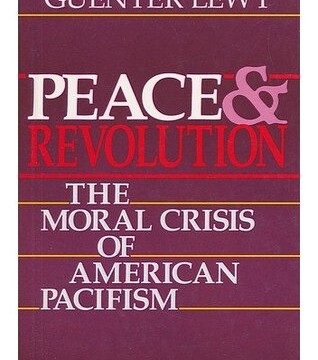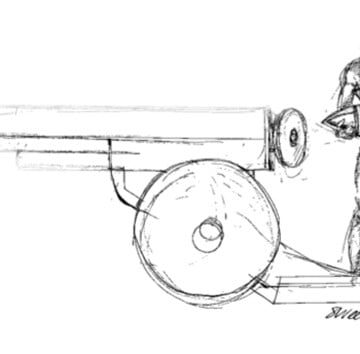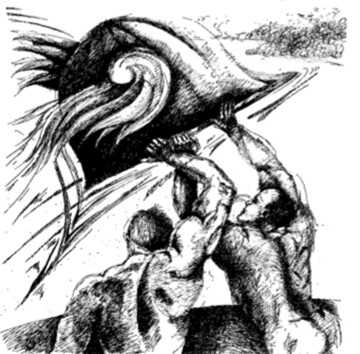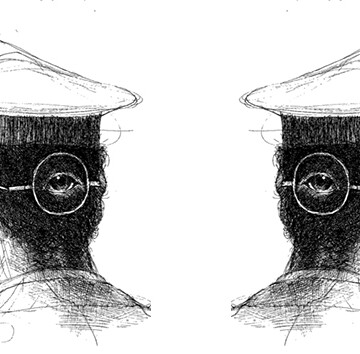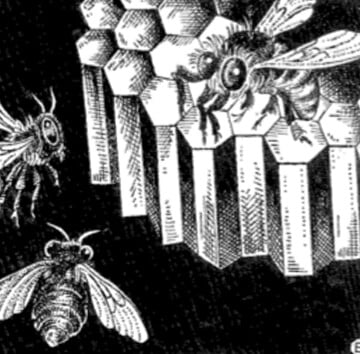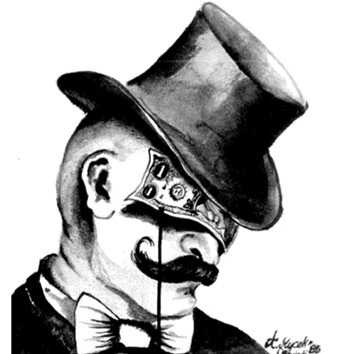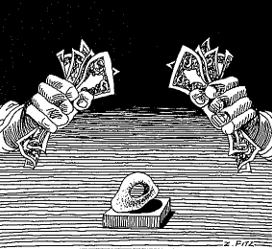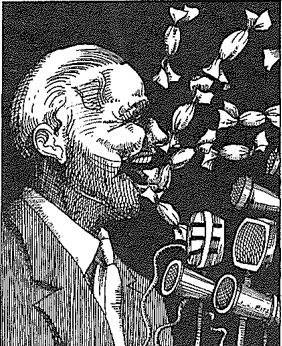“Globalization”—when did it become a central tenet of conservatism? According to Deputy Secretary of State John C. Whitehead, it was in the New Deal era that the US “rejected isolationism and economic nationalism” in favor of the “globalization of our daily lives.” The text of Whitehead’s address to the September meeting of the Economic Policy...
Author: William Hawkins (William Hawkins)
Princelings of Peace
“While at one time pacifists were single-mindedly devoted to the principles of nonviolence and reconciliation, today most pacifist groups defend the moral legitimacy of armed struggle and guerrilla warfare, and they praise and support the communist regimes emerging from such conflicts.” This is the thesis of Guenter Lewy’s study of the most enduring and successful...
The New Racism on Campus
Having done four years of graduate work at the University of Tennessee-Knoxville, I was distressed to learn that there, as elsewhere, a few radical activists can rout a weak administration and faculty by crying “racism.” Last February a special Task Force on Race Relations released a report to justify the subordination of education to racial...
Empire, Again
Yale historian Paul Kennedy’s book has been a great success, but unfortunately with the wrong people for the wrong reasons. Attention has focused on his concept of “imperial overstretch” which comes about when economic resources can no longer sustain military commitments. This heralds a state’s fall. Liberals love this part of Kennedy’s book and have...
U.S.—Staying in Business
“He that fails in his endeavors after wealth and power will not long retain either honesty or courage.” Not all change is progress. This simple statement is one of the dividing lines between right and left. An element of common sense to the conservative, it is denounced as timidity or a lame defense of vested...
Counterrevolution in Toyland
Among the hottest selling items in toy stores across the land is the “G.I. Joe” series of military action figures. Since the “Star Wars” movies, war toys have made a strong comeback from their depressed levels during the “antiwar” 1970’s. Model figures based on “Star Wars” characters proved so successful that others quickly entered the...
Military History: Vital, Neglected
“What does it profit the reader to wade through wars and battles and sieges if he is not to penetrate the knowledge of the causes which made one party succeed and the other fail?” —Polybius Polybius was the most perceptive chronicler of Rome’s rise to greatness. He concentrated on political and military history not merely...
Empire Strikes Back
” . . . To sit in darkness here hatching vain empires.” —Milton During his discussion of the overthrow of feudalism by the bourgeoisie in his classic Capitalism, Socialism and Democracy, Joseph Schumpeter asked whether “in the end such complete emancipation was good for the bourgeois and his world.” He concluded that it had not...
Economic Ideology and the Conservative Dilemma
From Edmund Burke’s distrust of “sophisters, calculators and economists” to Calvin Coolidge’s boast that “the business of America is business” on to George Gilder’s “economy of heroes” has been a long journey that conservatism has not weathered well, either intellectually or politically. What was once a robust philosophy concerned with all of humane culture has...
The Bear and His Claws
“The wisdom of all these latter times, in princes’ affairs, is rather fine deliveries, and shiftings of dangers and mischiefs when they are near, than solid and grounded courses to keep them aloof.” —Sir Francis Bacon No matter where the finger roams on the map, the question inevitably arises: What are the Russians trying to...
Economist in the Pulpit
“Dosn’t thou ‘ear my ‘erses legs, as they canters awaay Proputty, pioputty, proputty—that’s what I ‘ears ’em saay.” —Alfred Tennyson George Stigler won the Nobel Prize for Economics in 1982, the second member of the Chicago School to win that award in less than a decade (the other being Milton Friedman in 1976). These prizes...
Importing Trouble, Exporting Hope
“One scene of arts, of arms, of rising trade . . .” – James Thomson Kevin P. Phillips: Staying on Top: The Business Case for a National Industrial Strategy; Random House; New York. Michael). Fiore and Charles F. Sabel: The Second Industrial Divide: Possibilities for Prosperity; Basic Books; New York. David F....
Polemics & Exchanges
On Weapons of Despair by Brian Murray In his February review of Kosta Tsipis’s Arsenal and Freeman Dyson’s Weapons and Hope, Professor William Hawkins rightly reminds us that both geopolitical rubes and hard-core leftists are well represented in the “no nukes” movement that has in recent years received considerable, not unfavorable, attention in the Western...
Supply-Side Mercantilism
It is hard to believe that only a few years ago, political economy was dominated by talk of zero-sum societies and the limits to growth. Today, the talk is all of job-creation, reindustrialization, and high-techinvestment. This reversal in outlook is one of the clearest indicators of the ascendency of right-wing themes in American politics. The...
Weapons of Despair
Kosta Tsipsis: Arsenal: Understanding Weapons in the Nuclear Age; Simon & Schuster; New York. Freeman Dyson: Weapons and Hope; Harper & Row; New York The peace movement has become a permanent fixture of democratic politics. The movement is most visible when its members are marching in the streets, but it is most effective when there...
Social Placebos & Cures
Martin Carnoy, Derek Shearer, and Russell Rumberger: A New Social Contract: The Economy and Government After Reagan; Harper & Row; New York. Richard Cornuelle: Healing American: What Can Be Done About the Continuing Economic Crisis; G. P. Putnam’s Sons; New York. Each of these books purports to discuss economics, hence the direct reference to “the...
Catastrophic Chic
The wave of articles and books concerning nuclear-weapons policy has reached flood stage since 1981 in the wake of the protests launched by the born-again peace movement. The timing of this effort provokes suspicion. It is hard to take seriously as pacifists those figures who mix their opposition to American military policy with support for revolutionary...
